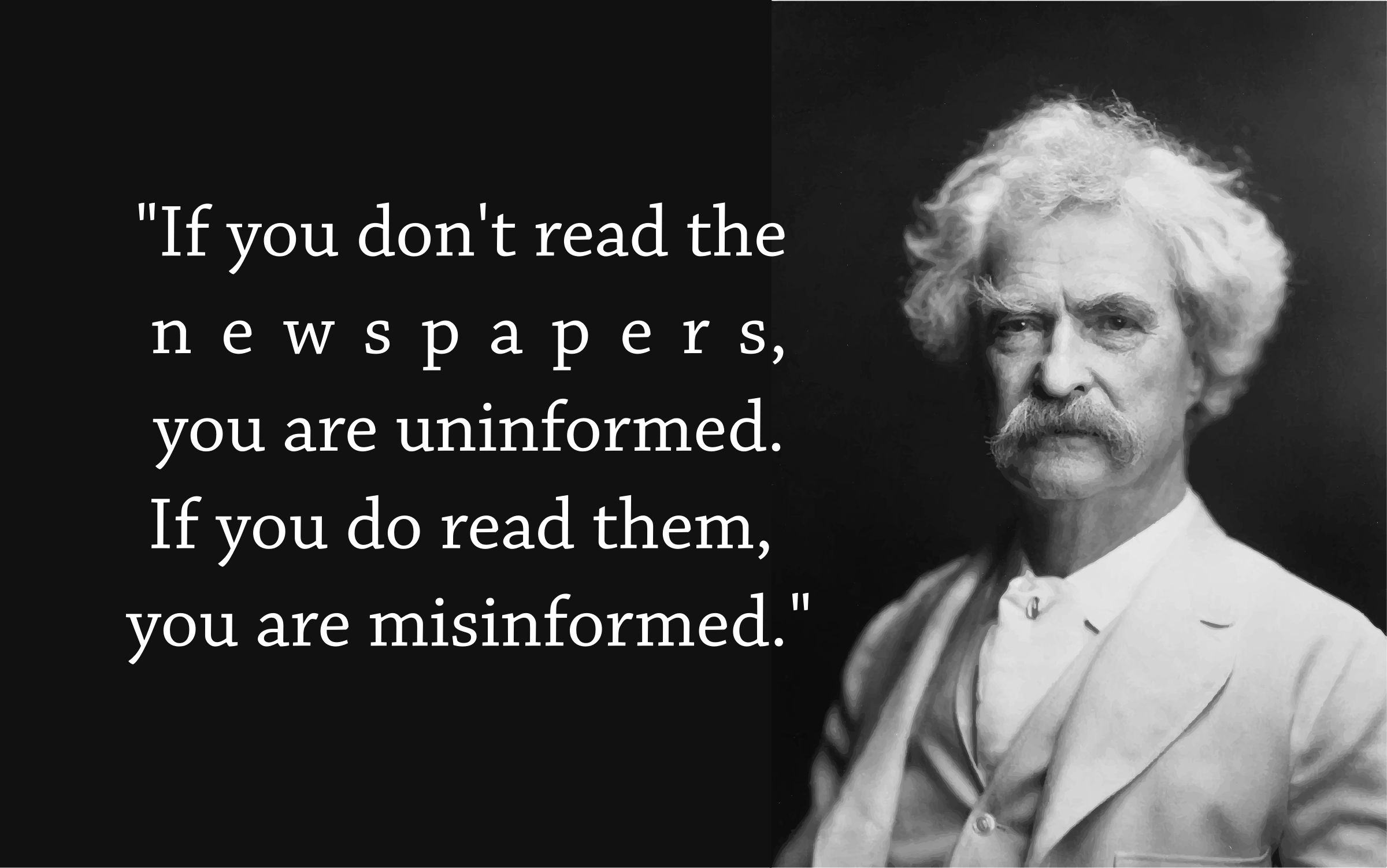
"It has gotten to where watching the news is like watching a televised version of the National Inquirer! I'm sick & tired of it!!!
How can we get just the news...the real news? ~L.C. of Georgia"
I don't watch news anymore. I read it from a variety of papers online- different sources so I can recognize the biases. Learning to recognize bias and how to pull out facts from commentary is a skill that takes time and intentionality.
Listen-
I listen to National Public Radio and other podcasts that focus on specific areas. While several of the shows on NPR do have biased hosts the news itself tends to be well reported with more details than the TV soundbites. It's a good idea to keep in mind that podcasts and radio talk shows are not reporting news. They either explore more details of a news story or they present a commentary. It will be biased but can still be informative.
Look-
I read news stories from CNN, Washington Post, New York Times and several others from different countries. Foreign news agencies tend to not have the same bias about happenings in the US or around the world- still biased but different. I try to challenge my own bias by reading a variety of view points. I also make sure to notice if what I am reading is editorial or a news story. (Editorials are commentary on facts- opinion.)
Stop...
 |
https://cdn2.geckoandfly.com/wp-content/uploads/2014/08/
napoleon-bonaparte-quotes-religion-war-politics34-830x466.jpg
|
 |
http://4.bp.blogspot.com/-O1d1gP_V0JU/UUbzcVkSukI/
AAAAAAAAAFo/FPrlLRp1SkQ/s1600/churchill.png
|
...and look some more.
If it is a story I truly care about or is very alarming I look for links to the facts being reported or I go ahead and do my own internet search to verify facts. That often means going to local news from where the story originated or looking to agencies that track specific data that is mentioned in the article.
Grandpa* knows best~
It takes work but it is what my grandfather taught me to do with print news- learn for myself what is happening and then decide what my opinion is.
Heather M. Flood served as her mother's Daily Reporter for several years before growing up. She has taught and written history, government, and geography curriculum for 13 years to home school classes. She is also the co-founder and education director for an adult education nonprofit, Hope Academy of Savannah, that helps adults find their hope and pursue their purpose.
No comments:
Post a Comment